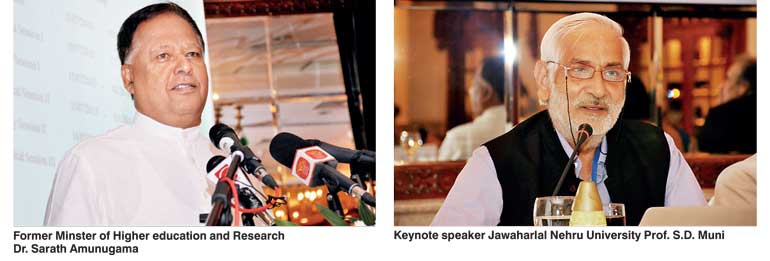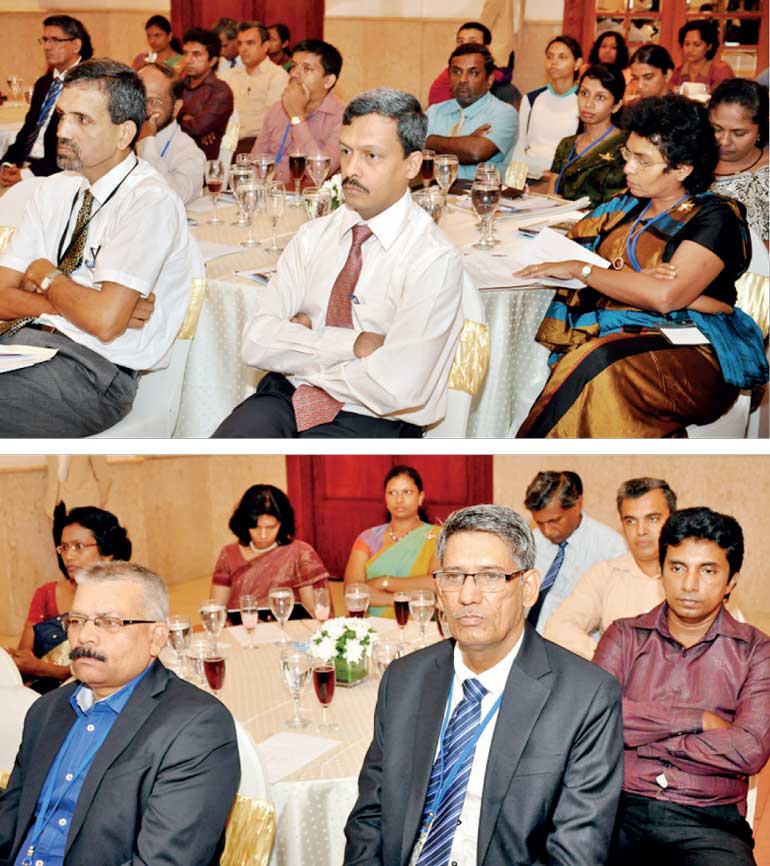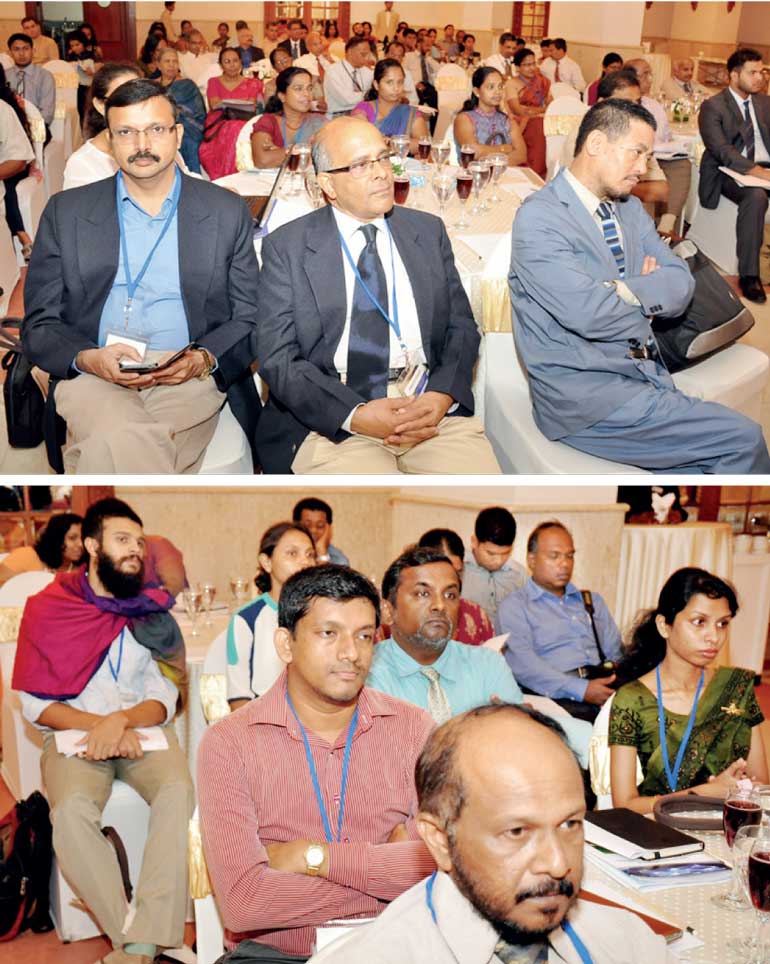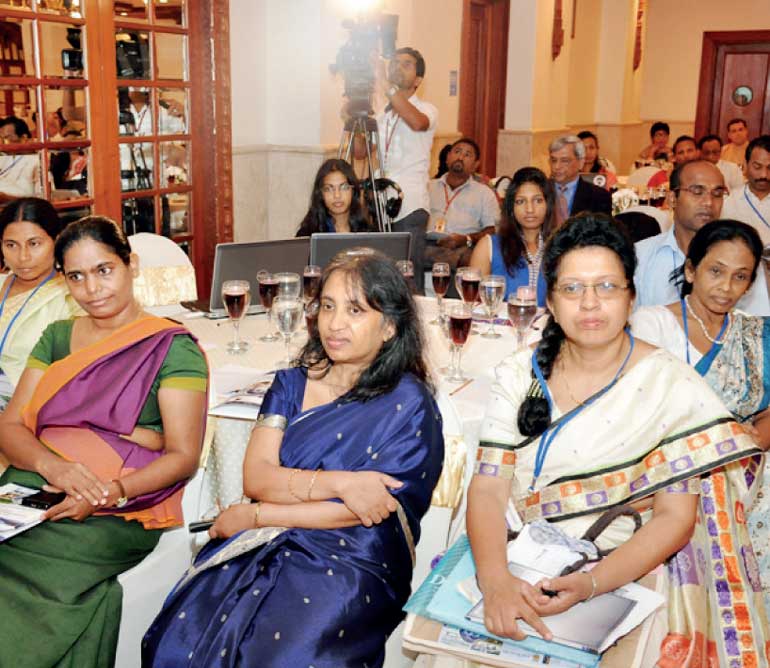Saturday Feb 28, 2026
Saturday Feb 28, 2026
Thursday, 16 July 2015 00:00 - - {{hitsCtrl.values.hits}}




By Waruni Paranagamage
Former Minster of Higher education and Research Dr. Sarath Amunugama yesterday emphasised the need for policy reforms for population and labour markets in South Asian (SA) countries, to gain socio-economic equity to the region.
Speaking at the inauguration of the two-day International Conference on ‘Promoting Socio-economic Equity in South Asia (ICPSE) organised by the National Science Foundation (NSF) in collaboration with Indian Council of Social Science Research (ICSSR) at The Kingsbury Dr. Amunugama pointed out that even though the policies that shifted towards the market economy had created inequity in Asia; the equality could be gained by introducing new labour market oriented population policies to the SA, via the support from social scientists.
“Asia is the engine of the economic growth of the modern time. Western countries have seen sharp decline in their economic growth rates, but Asian countries particularly India, China and Sri Lanka have contributed to rapid economic growth by giving a growth momentum to the global economy. But the South Asia is still facing the socio- economic inequity,” Amunugama pointed.
He further asserted that the inequality can be addressed via labour mobility and labour shortage issues in South Asia economies.
“Thirty years ago Sri Lanka and India were talking about the family planning. However today the population is consider as an economic profit. China had one child policy, but today they are facing very serious problems in labour shortages. Many countries have to change their emigration policies to keep the economic growth”
He said that the lack of labour market policies in Sri Lanka had created inequity among the population.
“Today we cannot find a village labour, no enough people to engage in tea industry or paddy cultivation. We have engine population but decline in a labour market,” he added.
However Amunugama asserted that the Sri Lanka figure in Millennium Development Goals (MDG) achievements was at good as a result of investments in public health, public education and other services.
“We have universal literacy, gender equality, very law mortality, high life expectancy levels. Prof. Amartya Sen found that one reason behind the Sri Lankan MDG achievements was, investments in public health and public education,” Amunugama emphasised.
However he said that the socio-economic inequity also could diminish by eradicating endemic political corruptions that going in the region.
Pix by Lasantha Kumara